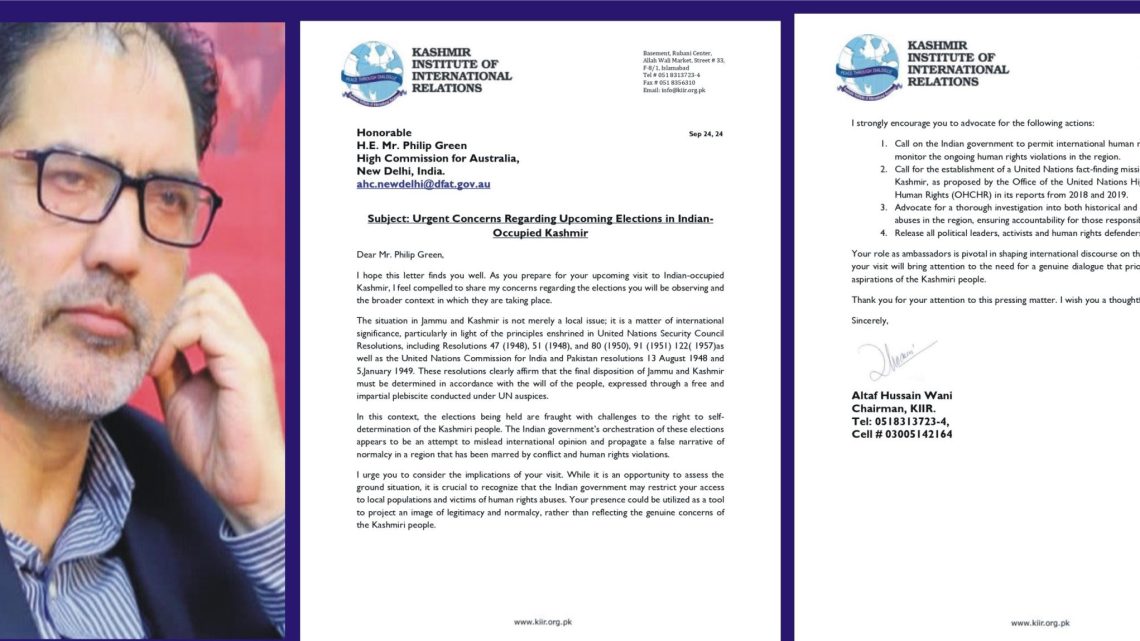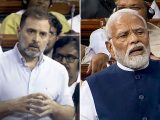
Exposing the Illusion of Normalcy & IIOJK Sham Elections: Wani wrote to Foreign Diplomats
September 24, 2024Altaf Hussain Wani, Chairman of the Kashmir Institute of International Relations, has criticized India’s recent assembly elections in occupied Jammu and Kashmir. He argues that these elections are designed to mislead international opinion and create a false narrative of normalcy.
In a joint statement addressed to foreign diplomats invited to observe the election process, Wani stressed that the dire situation in the region deserves international attention. He highlighted that the circumstances in Jammu and Kashmir are far from normal, despite India’s portrayal.
Wani referenced United Nations Security Council (UNSC) resolutions from 1947, which assert that the final status of Jammu and Kashmir should be decided through a free and impartial plebiscite facilitated by the UN. He warned diplomats that their presence could be exploited by India to legitimize its claims and obscure the genuine concerns of the Kashmiri people.
In his appeal, Wani urged diplomats to acknowledge the severe restrictions on access to local populations and the ongoing plight of human rights victims. He called for support of a UN fact-finding mission in the region to assess the situation accurately.
Additionally, Wani emphasized the importance of allowing international human rights organizations to monitor violations. He also advocated for the immediate release of political leaders, activists, and human rights defenders currently detained.
Wani expressed hope that the diplomats’ visit would not only highlight these issues but also reinforce the necessity of genuine dialogue that prioritizes the voices and aspirations of the Kashmiri people.
The significance of Wani’s statements cannot be understated. The ongoing political and human rights crisis in Kashmir is a matter of international importance, deserving global scrutiny and action. The narrative of normalcy projected by India often obscures the reality faced by Kashmiris, who continue to endure oppression and violence.
As international observers, foreign diplomats hold the potential to influence global perceptions and policies. Their engagement in Kashmir must focus on advocating for human rights, promoting accountability, and supporting the Kashmiri struggle for self-determination.
To conclude, Wani’s call to action serves as a critical reminder of the need for international awareness and intervention in Jammu and Kashmir. It emphasizes the urgency for a renewed commitment to uphold the rights and aspirations of the Kashmiri people amid ongoing challenges.

